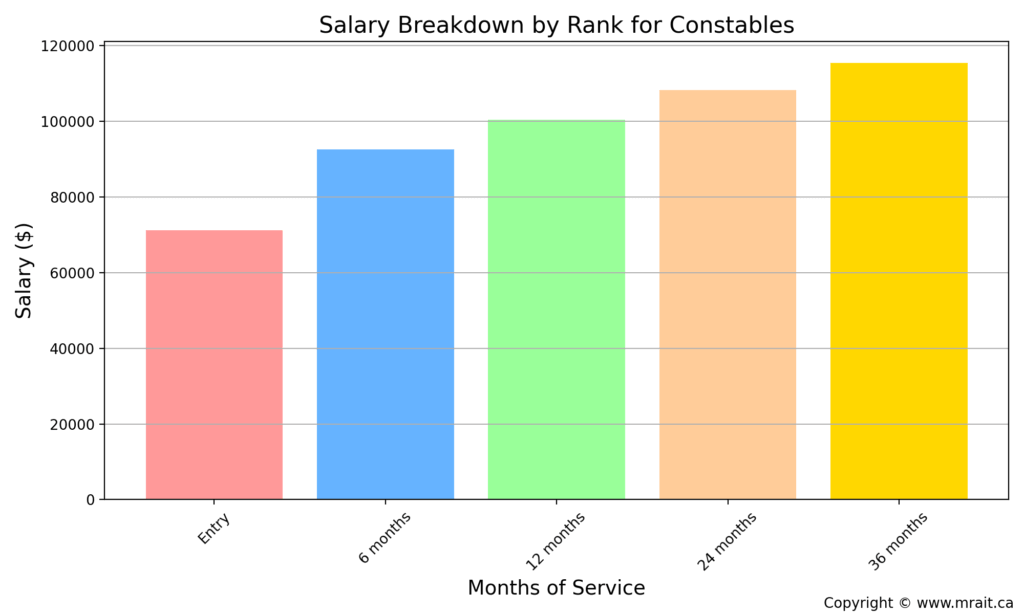The Royal Canadian Mounted Police (RCMP) operates under a clearly structured ranking system that significantly impacts salary levels and career progression. Understanding these ranks—and the corresponding salaries—can help prospective applicants and those curious about Canadian law enforcement gain valuable insight into RCMP career paths.
🔰 RCMP Ranks Overview

The RCMP’s rank structure reflects its paramilitary heritage and is divided into two primary categories:
Non-Commissioned Officers (NCOs):
- Constable
- Corporal
- Sergeant
- Staff Sergeant
- Sergeant Major
- Corps Sergeant Major
Commissioned Officers:
- Inspector
- Superintendent
- Chief Superintendent
- Assistant Commissioner
- Deputy Commissioner
- Commissioner
💼 RCMP Salary Breakdown
Salaries for Non-Commissioned Officers (2025 Estimates)

Constable Salary Progression:
- Entry-level: $71,191
- 6 months: $92,497
- 12 months: $100,356
- 24 months: $108,220
- 36 months: $115,350
These are base salaries and do not include additional allowances such as housing, overtime, or regional adjustments.
Salaries for Commissioned Officers (Approximate Ranges)
- Inspector: $125,000 – $140,000
- Superintendent: $140,000 – $155,000
- Chief Superintendent: $155,000 – $170,000
- Assistant Commissioner and above: Often exceed $170,000 annually
These figures are subject to change and may be influenced by experience, location, and ongoing collective agreements.
📈 Recent Updates to RCMP Salaries
In April 2022, the RCMP implemented retroactive salary increases of 1.75% per year from 2017 to 2023 for commissioned officers. These adjustments aim to keep RCMP compensation competitive and aligned with inflation and cost-of-living changes.
🎯 Why This Matters
Whether you’re considering a future as a Constable or aiming for a senior leadership role, understanding RCMP ranks and salaries helps you plan your path. With competitive pay, benefits, and opportunities for advancement, joining the RCMP offers both financial stability and the chance to serve communities across Canada.


